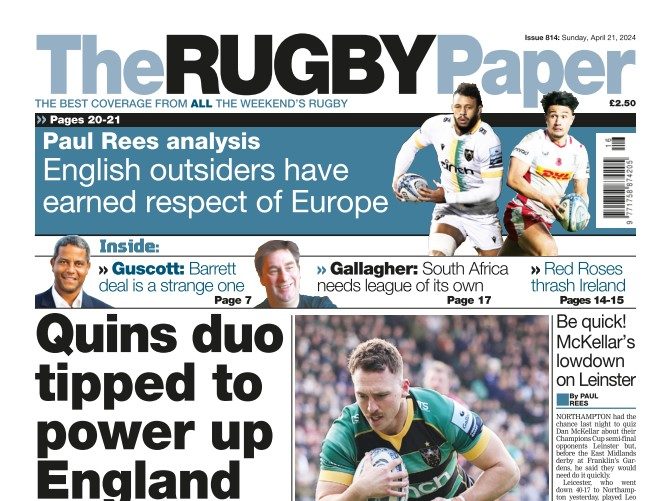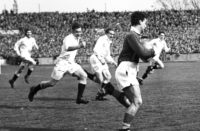RUGBY MATTERS
I am indebted to Andrew Beattie, the archivist at Eltham College, for more ‘gen' on AL ‘Bill' Gracie who got a mention in despatches last week when we chronicled the rugby career of Chariots of Fire 400m Olympic champion Eric Liddell.
It appears that not only did Eric rank, just, behind his older brother Robert in the Eltham pantheon of athletes and sportsmen, but both were bettered by Gracie, who was another sporting son of farflung Scottish missionaries.
The remarkable Gracie enjoyed six years in the Eltham First Xl – first appearing as a 12-year-old – and five years in the First XV which is a schoolboy career I have never found equalled anywhere. It would in any case be impossible today with ‘Health and Safety' barring such age differences in school teams, certainly in rugby.
Gracie ended up captaining both sides and in 1915 he won every senior event bar none on Eltham's Sports Day whereas the following year, with Gracie gone, the Liddell's shared the spoils.
Unsurprisingly, Gracie was an early comic book hero, a status enhanced by a fine war record when he quit Oxford University after just a term to join up. As a second lieutenant in the King's Rifle Corps he earned an MC in 1917 for his work as a signaller on the Western Front. He won 13 Scotland caps after the war – seven in tandem with Liddell – and ended up captaining them to a famous win over Wales in Cardiff in 1923, scoring a brilliant late, dummying, try to clinch the issue.
As Gracie dived to touch down he kept on sliding into the crowd and crashed into a young Welsh schoolboy fan seated on the ground knocking most of the young lad's front teeth out.
Gracie retired at the end of the 1924 season and, not a man to suffer fools gladly, there is a suggestion there was a falling out with the Scotland selectors. Some have suggested it was over Scotland's increasing inclination to pick New Zealand and Australian reared ex-pats although as a son of Empire himself that doesn't sound right. Right up to 1924, however, he had been Scotland's best post-war player by some distance and it remains very odd that he wasn't there for Scotland's exhilarating Grand Slam in 1925.
Although studying briefly at Oxford to become a lawyer, he changed direction altogether after the war and set up a successful shoe making business in Northampton. He returned to arms in World War 2 and won a military OBE for his work as camp commandant in North Africa and Italy.
Neither Gracie, nor indeed Liddell, were the first rugby playing sons of missionaries from Eltham College to play for Scotland. Both were beaten to that honour by Earnest Fahmy, a long forgotten but rather unusual figure on a number of counts.
Fahmy was born in China – as was Liddell – to an Egyptian father Ahmed who had converted from Islam to become a Christian missionary and doctor.
Fahmy, whose mother was Scottish, went from medical studies at Edinburgh University, to the Western Front where he was injured on three separate occasions.
After completing his medical studies he then moved to Abertillery in Gwent where he worked as a GP.
Fahmy was ever present for Scotland in the 1920 Championship when they narrowly missed out on a Grand Slam. He later moved to Edinburgh where he became President of the Edinburgh Obstetrical Society.
This obsession with sport from missionary children at Eltham wasn't just a Scottish thing. Beating all the Scots to international honours was a fourth Eltham student – Herbert Sibree – who was sent to the school while his parents carried out missionary work in Madagascar where he was born and brought up before being sent back to England.
Sibree's quicksilver pass – with Adrian Stoop at fly-half – was at the heart of Harlequins' spectacular running game in the first decade of the 20th century and earnt him three England caps in 1907 and 1908. He was another awarded an MC for gallantry during World War 1.



























